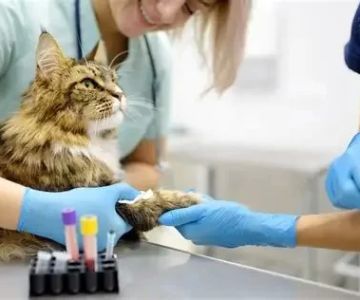- 1-Understanding-Your-Pets-Nervous-Behavior
- 2-Common-Causes-of-Nervousness-in-Pets
- 3-Strategies-for-Calming-an-Anxious-Pet
- 4-When-to-Seek-Professional-Help-for-Pet-Nervousness
- 5-Real-Life-Stories-of-Success-in-Managing-Nervous-Pets
- 6-Resources-for-Pet-Anxiety-Support
1. Understanding Your Pet’s Nervous Behavior
Dealing with your pet’s nervous behavior requires patience and a deep understanding of what anxiety looks like in animals. Pets, whether dogs or cats, can exhibit signs such as trembling, excessive barking or meowing, hiding, and destructive behavior when feeling nervous or stressed.
Recognizing these signs early allows pet owners to provide the support their companions need. Nervous behavior often reflects an animal’s response to unfamiliar environments, loud noises, or past traumatic experiences.
2. Common Causes of Nervousness in Pets
Many factors can trigger nervous behavior in pets. Some of the most frequent causes include:
2.1 Environmental Stressors
Loud sounds like thunderstorms or fireworks can cause acute anxiety, making pets seek comfort or act out.
2.2 Changes in Routine or Environment
Moving to a new home, introduction of new family members, or changes in daily schedules can unsettle pets.
2.3 Past Trauma or Abuse
Pets with difficult histories may remain nervous in certain situations or around specific triggers.
3. Strategies for Calming an Anxious Pet
Helping your pet overcome nervousness involves both behavioral and environmental adjustments. Some effective methods include:
3.1 Creating a Safe Space
Providing a quiet, comfortable area with familiar toys and bedding helps pets feel secure.
3.2 Consistent Routine
Maintaining feeding, walking, and play schedules reduces uncertainty and builds confidence.
3.3 Positive Reinforcement and Training
Using treats and gentle commands encourages calm behavior and strengthens trust.
3.4 Natural Calming Aids
Essential oils, pheromone diffusers, and specially formulated supplements can support relaxation when used properly.
4. When to Seek Professional Help for Pet Nervousness
If your pet’s nervous behavior persists or worsens, it may be time to consult a veterinarian or a veterinary behaviorist. Professionals can diagnose underlying conditions and recommend tailored treatment plans, which might include behavior therapy or medication.
Early intervention often leads to better outcomes and improves your pet’s quality of life. For personalized advice and support, clinics like Hidden Brook Veterinary specialize in managing pet anxiety and nervous behaviors with compassionate care.
5. Real-Life Stories of Success in Managing Nervous Pets
One pet owner shared how their dog, Max, reacted fearfully to fireworks every summer. By working closely with their veterinarian and implementing a combination of routine changes, positive reinforcement, and pheromone therapy, Max gradually became calmer during these stressful events.
These real-world examples highlight the effectiveness of a thoughtful, multi-pronged approach to dealing with your pet’s nervous behavior and inspire hope for others facing similar challenges.
6. Resources for Pet Anxiety Support
For those seeking reliable products and expert guidance on managing pet nervousness, Hidden Brook Veterinary offers a range of solutions tailored to anxious pets’ needs. From calming supplements to professional consultations, their resources help pet owners create a peaceful environment that supports emotional wellbeing.
Exploring such trusted options empowers you to provide the best care for your furry friend, ensuring a happier and healthier life together.











